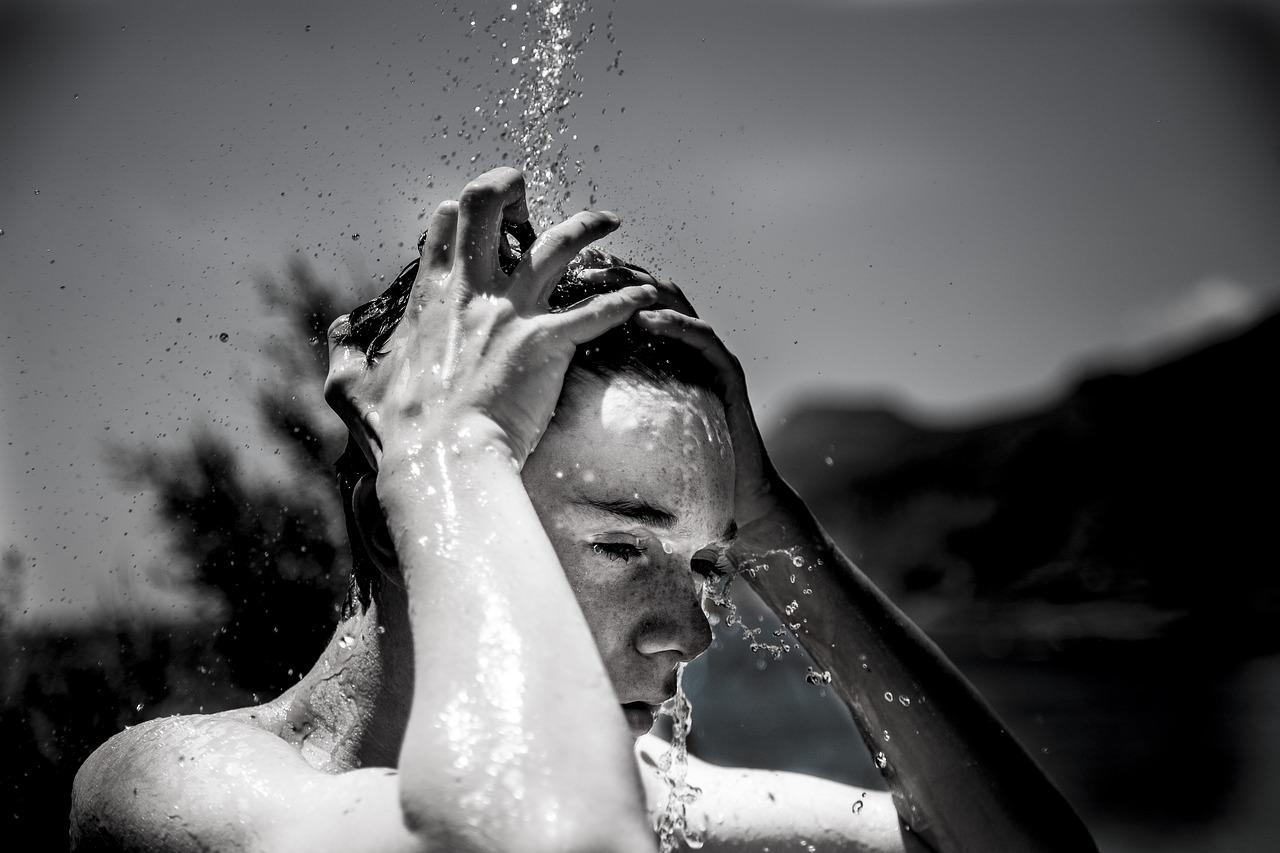Cold showers definitely get the heart racing! There are many reasons why you might be curious about cold showers and the physiological benefits for recovery, stress, mood, sleep and even weight loss.
_166006261562f28b975b49c2913.jpg)
There are often two strong schools of thought when it comes to cold showers and the benefits they offer, those who think cold exposure is a magic cure all, and those who consider it an urban myth. The truth? The truth lies somewhere in between the two.
WEIGHT LOSS
Having an icy cold shower will lower your body temperature and initiate non shivering thermogenesis, which leads to an activation and expansion of brown and beige adipose (fat) tissue and activates pathways in skeletal muscles which results in an increase of metabolism. Because of this, it is assumed that cold showers can aid in weight loss, but the studies that have been conducted are based on reduction of obesity and metabolic disease, they aren’t conclusive to the average person who takes a cold shower in the hope of losing weight. Interestingly, studies have also been conducted into the gut microbiome and how the cold effects the gut microbes that can determine the efficiency of exercise for diabetes prevention and enhance overall performance. The research was conducted with exercise in low temperature conditions and showed that exercise under sustained cold conditions produced a remarkable shift in microbiota composition and promoted a considerably higher level of white fat browning, greater weight loss and protected against the negative cardiovascular effects of cold exposure. However, it was concluded that these additional health benefits can be attributed to both cold and exercise compared with either of them alone.
RECOVERY
Cold showers are also thought to speed up recovery and be the best way to cool down. In this respect there is good news for both the cold shower lovers and the non-believers. Cold showers are proven to help recovery, but findings from studies indicate that cold water immersion has the same effectiveness as active recovery when reducing cellular stress and inflammation after exercise. Although after working out in a hot environment, cold showers come out slightly in front of active recovery as they promote thermal comfort sensation by facilitating a faster heart recovery 30 minutes post exercise and reduce cardiac stress compared with passive recovery (doing nothing).

MOOD
Research has shown a correlation between an increase of overall mood and reduction in depression and cold showers. Being exposed to the cold activates our sympathetic nervous system and increases the blood level of beta-endorphin (which is involved in changes in pain perception and mood) and noradrenaline (helps mobilise the brain for action and improve energy and attentiveness). Because of the high density of cold receptors in the skin, a cold shower sends an overwhelming amount of electrical impulses from peripheral nerve endings to the brain, which is believed to have an anti-depressive effect. Research has proven that cold hydrotherapy can relieve depressive symptoms rather effectively and have a significant analgesic effect. And it does this without any noticeable side effects or risk of dependence.
FATIGUE
There is no denying that taking a cold shower will instantly wake you up and invigorate you! However, research also shows that it does have a more substantial effect on overall fatigue. Cold stress has been proven to reduce the level of serotonin in most parts of the brain, which can help reduce exercise related fatigue. It has also been shown to increase the metabolic rate (as mentioned above) and it activates the hypothalamic-pituitary-adrenal axis which translates to a modest increase in cortisol. This increased opioid tone and higher metabolic rate is thought to help diminish fatigue by reducing muscle pain and accelerate recovery of fatigued muscle.
_166006268962f28be10a2fa9158.jpg)
In conclusion, there is definitely science to support various benefits of cold exposure by taking a cold shower, although it’s not as black and white as you may have thought. Our bodies are complex and wondrous machines, and if you are curious about the benefits of cold showers for long term health, the best thing to do is to try it for yourself and see how you feel after a few weeks. The good thing about cold showers is that they are free, easy to implement into your routine and have no adverse side effects. Try turning your shower cold gradually and increase from 1 minute to 5 or 10 minutes as you build up your threshold for the cold. If you do have a known sensitivity to the cold, check with your doctor before embarking on any kind of cold therapy.
To try joint specific ice therapy for recovery check our our BodyICE Recovery range of ice and heat packs.
To boost your mood and build resilience to stay in the cold water even longer try our Mental Training Guided Visualisations to set you up for success!
REFERENCES
Ajjimaporn, A., Chaunchaiyakul, R., Pitsamai, S. and Widjaja, W. (2019). Effect of Cold Shower on Recovery From High-Intensity Cycling in the Heat. Journal of Strength and Conditioning Research, 33(8), pp.2233–2240.
Buijze, G.A., Sierevelt, I.N., van der Heijden, B.C.J.M., Dijkgraaf, M.G. and Frings-Dresen, M.H.W. (2018). Correction: The Effect of Cold Showering on Health and Work: A Randomized Controlled Trial. PLOS ONE, 13(8), p.e0201978.
Hinkka, H., Väättänen, S., Ala-Peijari, S. and Nummi, T. (2016). Effects of cold mist shower on patients with inflammatory arthritis: a crossover controlled clinical trial. Scandinavian Journal of Rheumatology, 46(3), pp.206–209.
Meng, Y., Chen, L., Lin, W., Wang, H., Xu, G. and Weng, X. (2020). Exercise Reverses the Alterations in Gut Microbiota Upon Cold Exposure and Promotes Cold-Induced Weight Loss. Frontiers in Physiology, 11.
Peake, J.M., Roberts, L.A., Figueiredo, V.C., Egner, I., Krog, S., Aas, S.N., Suzuki, K., Markworth, J.F., Coombes, J.S., Cameron-Smith, D. and Raastad, T. (2016). The effects of cold water immersion and active recovery on inflammation and cell stress responses in human skeletal muscle after resistance exercise. The Journal of Physiology, 595(3), pp.695–711.
Shevchuk, N.A. (2008). Adapted cold shower as a potential treatment for depression. Medical Hypotheses, [online] 70(5), pp.995–1001. Available at: https://www.deepdyve.com/lp/elsevier/adapted-cold-shower-as-a-potential-treatment-for-depression-pW0P4l0L6x [Accessed 19 Nov. 2019].





Leave a comment
All comments are moderated before being published.
This site is protected by hCaptcha and the hCaptcha Privacy Policy and Terms of Service apply.